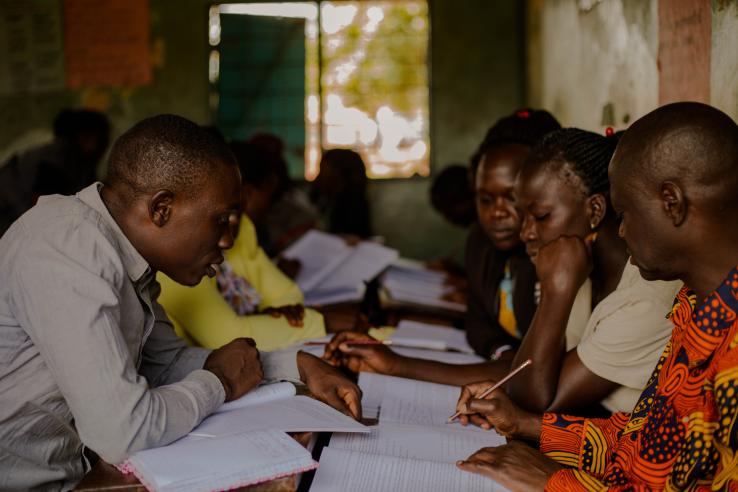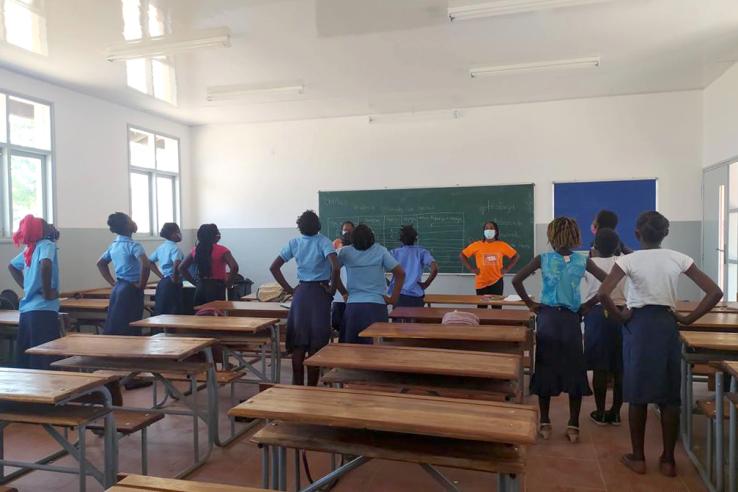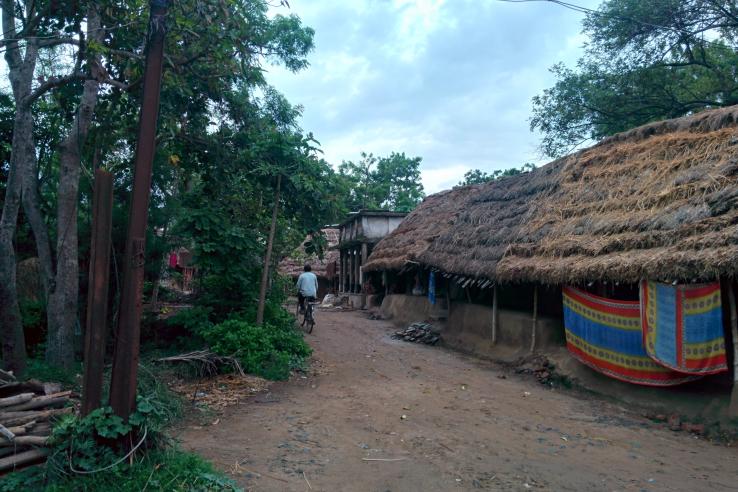Displaying 391 - 405 of 1299
Evaluation
Researchers are conducting a randomized evaluation of a subsidized housing assistance program for refugees in Jordan to assess its impact on their economic outcomes, psychological well-being, long-term migration decisions, and social integration into their host community.
Evaluation
In Colombia, researchers evaluated the impacts of a national computer distribution program (Computers for Education) on student test scores, time spent on learning, and attitudes towards education. The program had no effect on math or Spanish test scores, hours of study, or perceptions of school. Researchers found that, in practice, teachers only used the computers to teach computer usage skills, rather than the range of subjects for which they were intended.
Evaluation
Researchers, in partnership with Kimanya Ngeyo Foundation for Science and Education in Uganda, evaluated the impact of a program that trained teachers to learn like scientists: posing questions, framing hypotheses, and using real-world experience wherever possible. Researchers found positive impacts on classroom dynamics, teacher pedagogy, student learning, and creativity, with impacts on student learning sustained for four years.
Evaluation
In partnership with Melchia Investments, a private Ghanaian technology company, researchers are conducting a pilot randomized evaluation to identify the effectiveness of a new tax collection technology in increasing property tax revenues for local governments.
Evaluation
In many countries around the world, there is growing concern that certain groups of people may face job market discrimination based on physical appearance. To test this theory, researchers randomly submitted resumes with photos of people with varying levels of attractiveness to measure the effect on prospective employer interest. They found that, on average, resumes with attractive photos were 36 percent more likely to receive a callback than resumes with unattractive photos.
Evaluation
In Kazakhstan, researchers tested whether offering youth community service grants and training impacted their level of community engagement, pro-social behavior, life skills, and labor market outcomes. Engaging youth in civic service and/or training had little to no effect on these outcomes one-year post-program, with some evidence of negative training effects on labor market outcomes.
Evaluation
In Mozambique, researchers are evaluating the GBV and schooling impacts of implementing a GBV curriculum targeted at students.
Evaluation
To investigate which strategies are most effective at preventing drunk driving and reducing traffic accidents, researchers partnered with the Rajasthan Police in India to evaluate an anti-drunk driving program using sobriety testing checkpoints. Overall, the anti-drunk driving program was effective in reducing traffic deaths and accidents, with these reductions driven entirely by police stations that implemented surprise checkpoints.
Evaluation
In India, researchers leveraged a randomized evaluation of the distribution of a new seed variety to assess how the new seed spread within communities and social groups. They found that local social structures, such as the jati-caste system, influenced the extent of seed adoption. In particular, sharing of seeds between farmers within a village occurred more rapidly and extensively in villages with a relatively more homogenous social structure.
Evaluation
Researchers conducted a randomized evaluation to test the impact of leveraging social networks to disseminate information about two technologies, pit planting and “Chinese composting,” on farmers’ adoption of these methods. Providing performance-based incentives to peer farmers had the biggest effect on technology adoption.
Evaluation
Most eligible workers who receive the Earned Income Tax Credit (EITC), a cash transfer program geared toward low-income workers with dependents, receive the credit as an annual lump sum payment, even though they are eligible to receive the credit in the form of monthly disbursements throughout the year (referred to as the Advance EITC). To test whether or not workers might benefit from receiving the EITC in the form of monthly payments rather than a lump sum, researchers reduced potential enrollment barriers to encourage workers to participate in the Advance EITC.
Evaluation
Researchers assessed the impact of financial incentives and peer endorsement on mobile banking adoption and formal savings in Ghana. While financial incentives boosted adoption by 50 percent, peer endorsement was twice as effective, leading to sustained mobile banking use and a 30 percent increase in savings six months later.
Evaluation
Researchers added school-quality information onto housing listings on the AffordableHousing.com (formerly GoSection8) website, the largest provider of housing listings for HCV recipients, to evaluate the impact on families search for housing and their residential locations. The researchers found that access to information changed where families chose to move, with families moving to neighborhoods with higher-rated, more racially-diverse schools.
Evaluation
Researchers evaluated the role of reciprocity in increasing voter turnout through voter mobilization calls by varying whether an initial phone call included a plausible sign of good will by the campaign—an offer to follow up reminding them to vote.
Evaluation
Researchers conducted a randomized evaluation to investigate the demand for commitment savings products or financial counseling, and the impacts these products and services have on savings, among a sample of low- and moderate-income credit union members in New York City.














